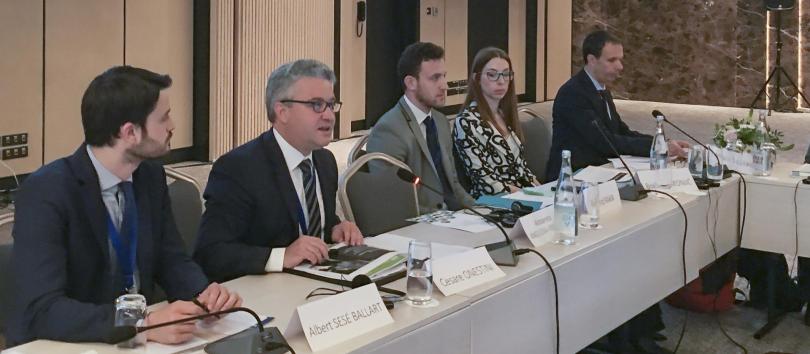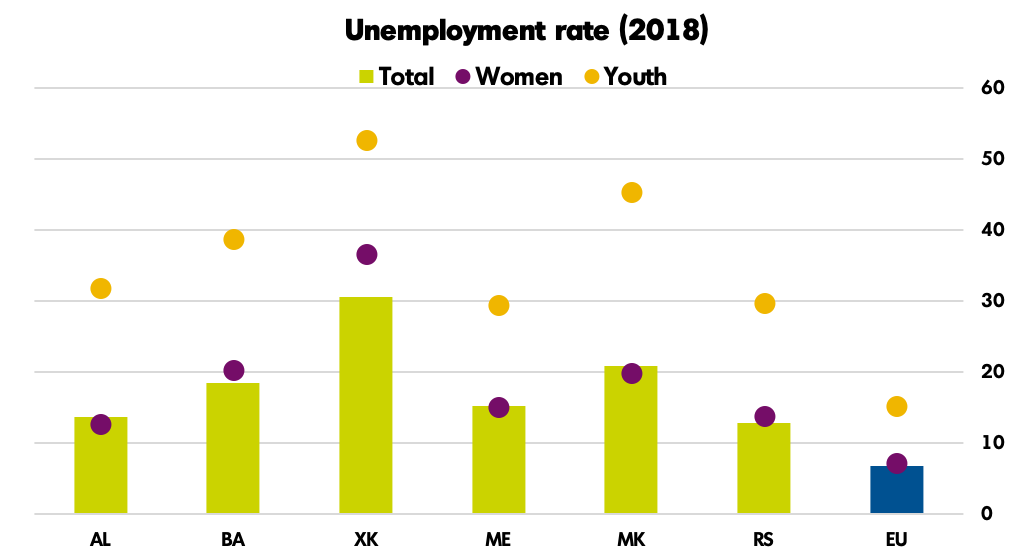
Boosting human capital development in the Western Balkans
On 3-4 June the education ministers of the Western Balkans countries gathered in Belgrade for the 8th Ministerial Meeting on Education and Training, co-hosted by Serbian Minister Šarčević.
Erasmus+ and students exchanges: a growing trend
Opening the event, European Commissioner for Education, Culture, Youth and Sport, Tibor Navracsics congratulated the Serbian National Agency for having successfully joined Erasmus+ as a fully-fledged member in 2019. Presenting the new strategy for the Western Balkans, he highlighted that it “has injected significant momentum, bringing more funding for activities and cooperation in the field of education, culture, youth and sport”.
Commissioner Navracsics added that the European Commission has also adopted its proposal for the future Erasmus programme for academic mobility and cooperation. “We have proposed to double the budget – bringing it to €30 billion for the period 2021 to 2027. Some of these funds will continue to deepen cooperation in education between the EU and the Balkans even further”. Since 2015, the EU has supported more than 27,000 student and staff exchanges in the higher education sector to and from the Western Balkans.
Vocational education to tackle skills needs
The meeting was attended by Cesare Onestini, ETF Director, who put vocational education and training under the spotlight, as a key aspect in the development of human capital in the region. By presenting the outcomes of the Torino Process – a participatory process leading to an analysis of human capital development issues and vocational education and training policy responses in different countries – he stressed the relevance of offering people a fast-track from school to work, in a lifelong learning perspective.

“Low fertility rates, ageing populations and migration are all taking a toll on the availability of skilled labour in the region as in many other European countries. Even if efforts are made to improve the relevance of upper secondary and tertiary education, better education levels do not always translate into better skills. This is because they often lack practical learning, there are insufficient links between education provision and job requirements and there is not enough lifelong learning. Young graduates”, he added, “sometimes spend years searching for jobs, which often do not match the level and profile of qualifications. Women, young and vulnerable groups are disproportionately affected by unemployment and inactivity”.
Western Balkans, getting ready for the future of work
Highlighting the rapidly changing job market, Cesare Onestini focused on the disruption that this is having on ordinary citizens. “On top of anticipating and managing future trends in work, economies and societies, the countries of the region are also having to deal with the effects of economic transition and the legacy of the past. Structural adjustments over the last decades have resulted in significant numbers of workers with skills that do not fit the needs of new jobs”, he concluded.
Discussions on education developments in the region will continue at the forthcoming Poznan Summit that is part of the Berlin Process, in July.
Did you like this article? If you would like to be notified when new content like this is published, subscribe to receive our email alerts.